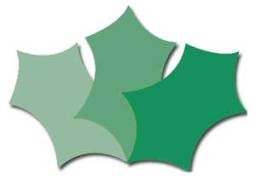 Our main First Aider is Ms Needham our Pupil Support Officer (First Aid at Work)
Our main First Aider is Ms Needham our Pupil Support Officer (First Aid at Work)
Other First Aiders in the school include:
Pupil Support Officer
- Sarah Iglesias – (First Aid at Work & Pediatric First Aid)
Office Team
- Michelle Hounslow – (First Aid at Work)
Early Years Foundation Stage Staff
- Maria Klanga – (Pediatric First Aid)
- Clare Mornington – (Pediatric First Aid)
- Alison Rush – (Pediatric First Aid and First Aid at Work)
- Jenny Elia – (Pediatric First Aid)
- Mirsije Kastrati – (Pediatric First Aid)
- Lydia Dennis – (Pediatric First Aid)
Meal Time Supervisers and Breakfast Club
- Bogumila Szymanska – (First Aid at Work)
Teaching Assistants
- Chloe Spann – (First Aid at Work)
- Louise Hurry – (First Aid at work)
- Caroline Giles – (First Aid at work)
- Jenni Rainikainen (First Aid at Work)
Site Manager
- Simon Reid – (First Aid at Work)
Teachers
- Maria Michael – (Emergency First Aid)
- Sally Thomas – (Emergency First Aid)
All Holly Park staff have Epi- pen training annually
First Aid procedures
- Medicines
Only prescribed medicines can be administered at school. Parents who would like medicine to be administered at school need to sign a Permission to Administer Medicine form when handing in the medicine that day. Medicine should be collected at the end of each day.
- Inhalers and Epi Pens
 If a child uses an inhaler at home, then we must have an inhaler at school. This is the same for Epi pens. All medication is kept in the First Aid room. Epi pens and inhalers are taken on all school trips.
If a child uses an inhaler at home, then we must have an inhaler at school. This is the same for Epi pens. All medication is kept in the First Aid room. Epi pens and inhalers are taken on all school trips.
For residential trips children take their home inhaler or Epi pen. Parents whose children have an inhaler sign a consent form and this states how often the inhaler is needed. Children with Epi- pens will need a care plan which is written by the school nurse and kept in the First Aid Room. Parents get a copy of this care plan.
- Defibrillator
We now have a defibrillator which is situated in the First Aid room.
- Sickness and diarrhoea
If your child has suffered from sickness or diarrhoea they should remain off school for 48 hours after their last episode.
- Childhood illnesses
If your child comes down with any viral infections such as chicken pox or measles, you should inform the school immediately.
- Allergies
Parents must inform the school if their child suffers from any allergies. This includes an allergy to plasters.
- Accidents at school
 All accidents at school that are reported to the Pupil Support Officer are recorded. Minor bumps and scratches can occur during a school day. We do not inform parents of every single incident.
All accidents at school that are reported to the Pupil Support Officer are recorded. Minor bumps and scratches can occur during a school day. We do not inform parents of every single incident.
Major accidents are recorded and parents are informed (often by phone). Head injuries are always reported to parents via our yellow letters. If we feel that a child needs to go home because of an accident; needs to see a doctor or needs to be checked by the hospital (not as an emergency) or due to sickness we would call the parents.
If there is a really serious incident we call an ambulance and also the parents. A Riddor form is completed for major accidents including fractures or hospital admissions.
- Emergency contact numbers
It is vital that we have up to date contact numbers for parents in case we need to contact you because your child is unwell or they have had an accident. In addition to this it is essential that we have an up to date emergency contact number (a neighbour, friend or relative) in case we cannot contact you.
- First Aid kit
The First Aid equipment is kept in the Welfare Room and is constantly kept well stocked and supplies are replaced when stocks run low. Small First Aid kits are taken on any trips out of school.
